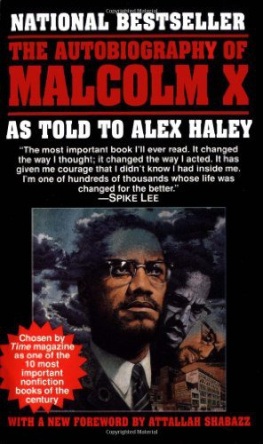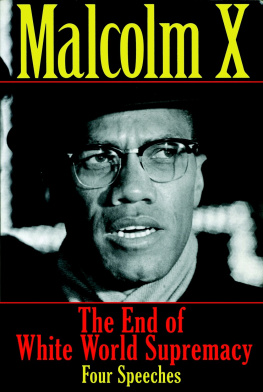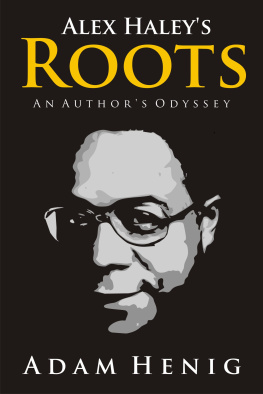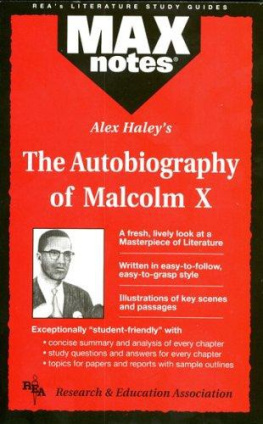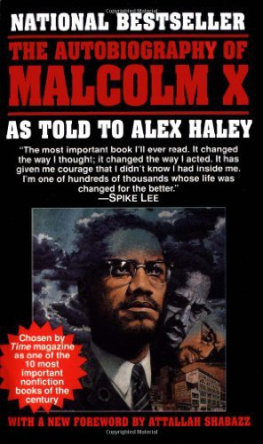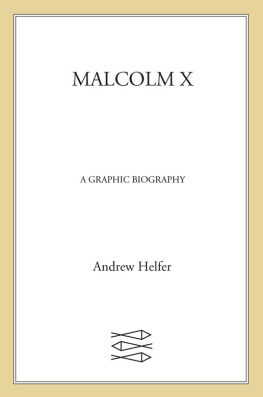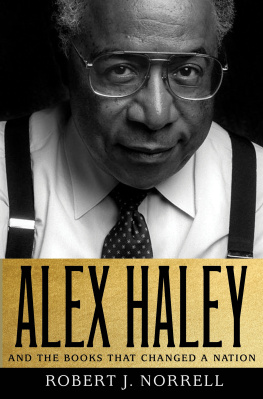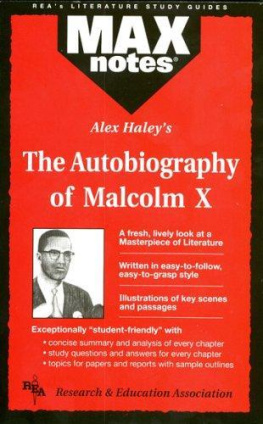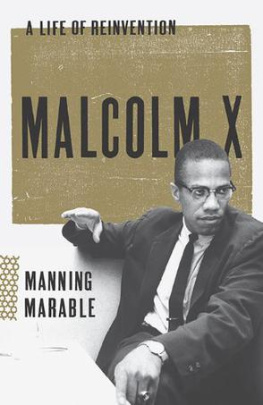M
Autobiography of Malcom X
Behold, America. Just when our country's cultural evolution appears to have the man who was the author of the internationally acclaimed _Roots_ passed away suddenly in the middle of the night. Alex Haley and I had discussed the possibility of my writing his autobiography to acknowledge our literary circle, our family of writers-my father to him and him to me.
Six years have passed since I received this initial request to prepare a new foreword for my father's life story. My godfather's wish was that I commemorate my father's life by writing about some of the significant events that have served as a postscript for his extraordinary life story, but to do this it is essential to begin with the legacy that my father himself was heir to from the beginning.
In 1919, my paternal grandparents, Earl and Louisa Little, married and began their large family of eight children. At the same time they both worked steadfastly as crusaders for Marcus Garvey's Universal Negro Improvement Association, acting as chapter president and writer/translator for more than a decade. Their children were deeply involved and inspired by their parents' mission to encourage self-reliance and uphold a sense of empowerment for people of the African Diaspora.
Given the turbulence, fear, and despair of the depression era, with its economic droughts and racial and social inequities, my grandparents could never have imagined that one of their own children would have his likeness on a United States postal stamp before the century's end.
Eighty years later, on January 20,1999, pride filled Harlem's historic Apollo Theatre as six of Earl and Louisa Little's granddaughters sat encircled by a body of fifteen hundred, as family, friends, esteemed guests, and well-wishers gathered to celebrate a momentous occasion-the unveiling of the United States Postal Service's newest release in its Black Heritage Stamp Series.
The issuance of the stamp with the image of El-Hajj Malik El-Shabazz-known to the world as Malcolm X and fondly loved by myself and my five sisters as Daddy-will provide a source of eternal pride to his children. While this was indeed a glorious moment, it does not cancel the pain
of the loss of both our parents, or even kiss away the ache of their absence. What it certainly does is add to the blessings of our dowry.
The stamp also serves as a reminder of the stock from which we were born and confirms significantly that how one lives his or her life today stands as a testament to one's forever after.
In his genuine humility and pure dedication to service, my father had no idea of the potency of his deeds, of the impact his life would have on others, or of the legacy that was to unfold. As he and my godfather, Alex Haley, worked diligently to complete this classic work-in person, from airport telephones, via ship to shore, or over foreign wire services-he could never have imagined by America's tone in his final days that his words, philosophy, and wisdom would be so appreciated and honored around the world, or that it would still offer inspiration and guidance to so many.
In my father's absence, my mother nurtured and protected the significance and value of her husband's endless devotion to human rights. She was thrilled by the opening discussions about her husband's image appearing on a U.S. postal stamp. From her perspective, it was not as inconceivable as others have found it. To my mother, it was his due.
As the house lights dimmed in the Apollo Theatre, the flickering images of black-and-white photographs and film clips on the screen chronicled my father's life. Bittersweet, his youthful face and broad smile caressed my heart. As the documentary film moved forward, the voice-over of our dear family friend and loving uncle actor Ossie Davis delivered the eulogy from my father's funeral in 1965. This became the backdrop for the montage of nostalgicchildhood memories that played in my mind. Life with both parents and my little sisters. Life joyous and uninterrupted.
When people ask how my mother managed to keep my father's memory alive, all I can say is-for my mother, he never left. He never left her. He never left us. My father's spiritual presence is what sustained my mother. And we, their children, were the beneficiaries of their timeless love for one another.
Born and raised in a family that was culturally varied, I innately gravitated to the rhythms of the world. Mommie was our constant, as many mothers are. Daddy was the jubilant energy in our world. He was not at all like the descriptions I grew up hearing. In addition to being determined, focused, honest, he was also greatly humorous, delightful, and boy-like, while at the same time a strong, firm male presence in a house filled with little women. His women. My sisters, me, and our mother. A collaboration of qualities that enchants me even now.
... If you knew him you would know why we must honor him, Uncle Ossie's voice continued. Malcolm was our manhood, our living, black manhood.... and, in honoring him, we honor the best in ourselves....
A spotlight on the Apollo podium brought me back to the present as the announcer introduced Ruby Dee and Ossie Davis, the first of an intimate selection of my father's esteemed comrades and appreciators from the front line to speak and share their remembrances.
Aunt Ruby opened, What a privilege to witness the radical gone respectable in our times.... Uncle Ossie continued, We in this community look upon this commemorative stamp finally as America's stamp of approval....
When I had mentioned the issuance of the stamp to others, the news simply stopped folks in their tracks. Touched. Teary-eyed. They could hardly believe it. They had to catch their breath, or ask me to repeat myself. How can this be? they wondered. A stamp with Brother Malcolm's face on it? What does it mean? Is America really ready for a Malcolm X stamp, even if it is thirty-four years after his assassination?
I reflected on the message of Congressman Chaka Fattah, the ranking Democrat on the Postal
subcommittee, who commented, "There is no more appropriate honor than this stamp because Malcolm X sent all of us a message through his life and his life's work.
Stamps are affixed to envelopes that contain messages, and when we receive an envelope with this particular stamp on it hopefully it is a message that will speak again to the conscience of this nation. Hopefully not just to those of African descent in America but to those who want to speak and be heard on the question of human rights throughout the world. To this day Malcolm X stands as a leader. His thoughts, his ideas, his conviction, and his courage provide an inspiration even now to new generations that come.
I've asked myself, What change in our society today permits the reevaluation of my father's convictions or his stance on the human injustices that plagued the international landscape? For years, he's been the subject of a patchwork of commentaries, numerous judgments, and endless character assessments from a spectrum of self-appointed experts. But, in spite of the psychoanalysis, Malcolm will always be exactly who he is, whether or not we as a society ever succeed in figuring him out. Truth does not change, only our awareness of it.
Not everyone agreed with my father's philosophy or methodology; he was considered complicated, intricate, and complex. Nevertheless, he was always a focused man with a commitment and a program. His plan of action, regardless of the stages of his life, his agenda, and his perspective were always poignantly clear.
Malcolm X never advocated violence. He was an advocate of cultural and social reconstruction- until a balance of equality was shared, by any means necessary. Generally, this phrase of his was misused, even by those who were his supporters. But the statement was intended to encourage a paralyzed constituent of American culture to consider the range of options to which they were entitled-the means. By any means necessary meant examine the obstacles, determine the vision, find the resolve, and explore the alternatives toward dissolving the obstacles. Anyone truly familiar with my father's ideology, autobiography, and speeches sincerely understands the significance of the now-famous phrase.

